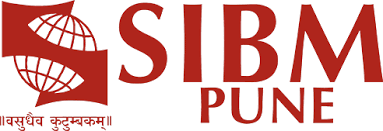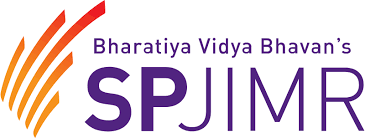
(1).
About MBA
MBA stands for Master of Business Administration
and is a postgraduate degree in business management. In India, pursuing an MBA
is a popular choice for those who want to enhance their career opportunities
and gain management skills.
There
are various options available for pursuing an MBA in India, including
full-time, part-time, distance learning, and online programs. Some of the
popular entrance exams for MBA in India
include CAT (Common Admission Test), XAT (Xavier Aptitude Test), GMAT (Graduate
Management Admission Test), and MAT (Management Aptitude Test).
Indian
Institutes of Management (IIMs) are the top B-schools in India, offering highly
coveted MBA programs. Other prestigious B-schools in India include XLRI, SPJIMR, FMS, and ISBM.
Pursuing an MBA in India can be expensive, and the cost varies depending on the institute and program chosen. However, scholarships and financial aid are available for deserving candidates. The ROI (Return on Investment) of an MBA degree in India is generally considered high, as it can lead to better job prospects and higher salaries.
(2).
Eligibility Criteria
The
eligibility criteria for MBA programs in India may vary from one institution to
another, but some of the common requirements include:
(1).
Bachelor's Degree
Candidates
must have a Bachelor's degree in any discipline from a recognized university.
The duration of the degree should be at least three years.
(2).
Minimum Marks
Candidates
must have secured a minimum of 50% marks or equivalent CGPA in their Bachelor's
degree. However, some institutions may require a higher percentage of marks.
(3).
Entrance Exam
Candidates
must appear for national or state-level entrance exams such as CAT, MAT, XAT,
CMAT, or GMAT. The scores of these exams are used by most institutions for
admission.
(4).
Work Experience
Some
institutions may prefer candidates with work experience, especially for
executive MBA programs.
(5).
English Language Proficiency
Candidates
should have talent in the English language. Some institutions may require
candidates to take an English language proficiency test such as TOEFL or IELTS.
(6).
Age Limit
There
is no specific age limit for MBA programs in India. However, a few
establishments might also additionally have their personal age criteria.
It is vital to be aware that eligibility standards can also additionally range from group to group. Candidates should check the specific requirements of the institutions they are interested in applying to before applying.
(3).
MBA Program Rankings
There
are various organizations that rank MBA programs in India based on different
criteria. Some of the popular rankings for MBA programs in India include:
(1).
National Institutional Ranking Framework (NIRF)
NIRF
is an annual ranking released by the Ministry of Education, Government of
India. It ranks educational institutions in India based on various parameters,
including teaching, learning, research, and perception. NIRF also ranks MBA
programs offered by B-schools in India.
(2).
Business Today
Business
Today is a leading business magazine in India. It releases an annual ranking of
B-schools in India based on various parameters, including reputation, faculty,
infrastructure, placements, and international linkages.
(3).
QS World University Rankings
QS
World University Rankings is an annual ranking of B universities and colleges
worldwide. It ranks MBA programs offered by B-Schools in India based on various
metrics including employability, alumni achievement, and diversity.
(4).
Outlook-ICARE India MBA Rankings
Outlook-ICARE
India MBA Rankings is an annual ranking of B-schools in India released by
Outlook magazine. It ranks B-schools based on various parameters, including
reputation, faculty, research, and placements.
(5).
Eduniversal Best Masters Ranking
Eduniversal
is an international rating and score employer for better education. It ranks
MBA programs offered by B-schools in India based on various parameters,
including international reputation, accreditations, and faculty expertise.
(6).
Financial Times Global MBA Rankings
Financial
Times releases an annual ranking of MBA programs worldwide based on various
parameters, including career progress, salary increase, international mobility,
and faculty diversity.
(7).
The Economist MBA Rankings
The
Economist releases an annual ranking of MBA programs worldwide based on various
parameters, including career opportunities, personal development, and salary
increase.
(8).
Bloomberg Businessweek Best Business Schools
Bloomberg
Businessweek releases an annual ranking of MBA programs in the US based on
various parameters, including student surveys, employer surveys, and career
outcomes.
(9).
Forbes Best Business Schools
Forbes
releases an annual ranking of MBA programs in the US based on various
parameters, including return on investment, alumni satisfaction, and networking
opportunities.
It
is important to note that rankings can vary from year to year and may not be
the only factor to consider while selecting an MBA program. Candidates should
also consider other factors such as program curriculum, faculty, industry
connections, placements, and alumni network before making a decision.
(4).
How to choose the right school for MBA in India?
Choosing
the right school for an MBA in India can be a daunting task as there are
numerous options available. Here are some factors to consider while selecting a
school for an MBA in India:
(1).
Reputation
The
reputation of the B-school is an essential factor to consider. Look for schools
that have a good reputation and are recognized by top organizations, such as
the National Institutional Ranking Framework (NIRF), QS World University
Rankings, and Financial Times Global MBA Rankings.
(2).
Curriculum
The
curriculum of the MBA program is another crucial factor to consider. Look for
schools that offer a comprehensive and industry-relevant curriculum that
includes hands-on experience through internships, case studies, and projects.
(3).
Faculty
The
quality of the faculty is an important factor to consider while selecting an
MBA program. Look for schools that have experienced and knowledgeable faculty
members who have worked in the industry and can provide real-world insights.
(4).
Industry Connect
Look
for schools that have strong industry connections and collaborations with top
companies in the industry. These collaborations can help you get exposure to
the latest industry trends and gain practical experience through internships
and projects.
(5).
Placement Record
The
placement record of the school is another important factor to consider. Look
for schools that have a high placement record with reputed companies in the
industry. Also, check the average salary packages offered to students.
(6).
Alumni Network
The
alumni network of the school is an important factor to consider. Look for
schools that have a strong alumni network as it can provide you with valuable
connections and networking opportunities.
(7).
Location
The
location of the school is also an important factor to consider. Look for
schools that are located in a city with a strong business ecosystem, as they
can provide you with better opportunities for internships and placements.
Considering
these factors can help you make an informed decision while selecting the right
school for an MBA in India.
(5).
Conclusion Note
To
summarize, MBA program rankings provide a good starting point for candidates to
shortlist top B-schools. Rankings such as Financial Times Global MBA Rankings,
QS Global MBA Rankings, and The Economist MBA Rankings are some of the popular
ones. However, candidates should not solely rely on rankings while choosing an
MBA program.
When
choosing the right school for an MBA in India, candidates should consider
factors such as the reputation of the institution, the curriculum, the quality
of faculty, industry connections, placement records, alumni network, and
location. It is important to research and compare multiple schools to make an
informed decision.
Additionally,
the eligibility criteria for MBA programs in India may vary from institution to
institution, but some common requirements include a Bachelor's degree, minimum
marks, entrance exam scores, and English language proficiency. Candidates
should check the specific eligibility criteria of the institutions they are
interested in before applying.
By
considering these factors, candidates can select the right school and MBA
program that aligns with their career goals and aspirations.
The Future of Work: Preparing MBA Graduates for a Changing Job Market
Related News
View AllRelated Articles
View AllTrending Articles
View All-
NIRF Ranking 2024 for Top Management Colleges: List of Top Management Institutes in India
Aug, 21, 2024 Read More -
Top NIRF Ranking of Engineering colleges in India 2024
Aug, 20, 2024 Read More -
Top NIRF Ranking MBA Colleges in India 2024
Aug, 16, 2024 Read More -
NIRF Ranking 2024: Top Universities, Colleges, and Key Parameters Explained
Aug, 14, 2024 Read More -
SNAP 2024 Exam: Check SNAP Test 1, 2 & 3 Dates
Jul, 18, 2024 Read More -
Full-Time MBA Programs in India: Top Colleges with Low Fees and High ROI
Jul, 12, 2024 Read More -
Best Banks for MBA Education Loans in India: Top Options and Key Features
Jul, 12, 2024 Read More -
Top Government Jobs and Exams for MBA Graduates in India: Opportunities and Details 2024
Jul, 12, 2024 Read More -
CAT vs XAT for MBA in India: Key Differences and Which Exam to Choose
Jul, 12, 2024 Read More -
Top MBA Scholarships in India: Options for Government and Private Institutions
Jul, 12, 2024 Read More
Trending News
View All-
Odisha CHSE Board Time Table 2025 Out: Check Exam Dates Here
Nov, 21, 2024 Read More -
SNAP 2024 Registration Deadline Tomorrow: Register Now
Nov, 21, 2024 Read More -
CBSE 10वीं-12वीं की डेटशीट जारी: परीक्षाएं 15 फरवरी से शुरू, PDF डाउनलोड करें
Nov, 21, 2024 Read More -
IGNOU PhD Admission 2024: Registration Deadline Extended to November 25
Nov, 21, 2024 Read More -
NEET PG Counselling 2024: Round 1 Seat Allotment Released – Download PDF Here
Nov, 21, 2024 Read More -
Chhattisgarh NEET PG Counselling 2024: Merit List Released–Check Seat Allotment Date
Nov, 21, 2024 Read More -
CBSE Date Sheet 2025 Released: Check Class 10th & 12th Exam Dates
Nov, 21, 2024 Read More -
CAT 2024 Scheduled for 24 November: Exam Centers, Timing, and Instructions
Nov, 20, 2024 Read More -
CAT 2024: Final Exam Details and Guidelines for 24 November
Nov, 20, 2024 Read More -
CAT 2024 Exam Day Essentials: Don’t Forget These Documents
Nov, 20, 2024 Read More
Related Universities
View All-
Faculty of Management Studies (FMS), New Delhi
-
Symbiosis Institute of Business Management (SIBM) Pune
-
S P Jain Institute of Management and Research, Mumbai
-
Xavier School of Management, (XLRI) Jharkhand





 back
back